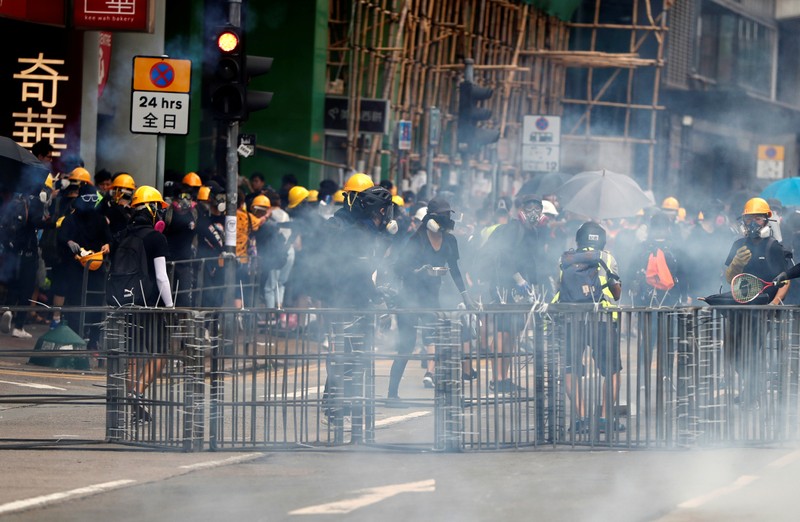
Bernard J. Ebbers, right, president and CEO of MCI WorldCom Inc., speaks as William T. Esrey, chairman and CEO of Sprint Corp., listens during a news conference in New York, October 5, 1999.
Jon Gordon | Newsmakers | Getty Images
A lot of signs are pointing toward the U.S. economy slipping into a recession in the next year — Treasury yields are sloping downward, freight shipments are dropping and company executives are collectively getting nervous.
The decade-long expansion has been very good to the tech industry.
Tech giants with strong balance sheets have seen their stock prices soar: Since the last recession ended in July 2009, Apple is up almost 900%, Amazon more than 2,000%, and Microsoft — once seen as hopelessly out of touch — is up more than 400%. Smaller companies with lower profits but enviable revenue growth have also done well, like Salesforce (up more than 1,400%) and Netflix (more than 5,000%).
Companies like Twitter and Uber grew from start-up through IPO, collectively achieving well over $100 billion in new market value. Venture money keeps flowing into start-ups, to the point where $100 million fundraising rounds seem unremarkable.
It’s gotten to the point where the power and dominance of these companies seem inevitable, and the wisdom of their executives and investors unquestionable.
But as anybody who lived through the dot-com bust or Great Recession can tell you, a lot of things will change in a downturn. Depending on how deep and how long any recession lasts, look out for the following:
- Companies with weak balance sheets will run out of money when cash flow reverses and they cannot find outside financing. Some seemingly big names will disappear almost overnight, or become a lot less prominent and sell for tiny fractions of their current valuations. Many of the companies about which you wonder “how do they stay in business?” won’t.
- Owners will be looking to restructure and engage in creative business recombinations. Mergers, spinoffs, buyouts, you name it — assuming financing is available.
- Execs who have been delivering borderline performance will be fired, while those with a track record of success will find excuses to leave before things spin out of control. Big names could drop fast, especially after a disastrous quarter or two.
- Big companies will abandon speculative or underperforming business units. On the plus side, this will leave new room for start-ups to find disruptive business models that the giants are suddenly too scared to touch.
- Advertising spend usually maps to total economic growth, meaning that companies who are mostly dependent on ads for revenue will struggle as businesses tighten their ad budgets. Some traditional media companies, already hurt by years of shifting ad revenues to tech giants like Google and Facebook, won’t make it out the other side. The smaller social networks like Twitter, Snap and Pinterest could also see tougher going.
- Shareholders will be looking for somebody to blame, spurring lawsuits and board activism.
- Employee activism at places like Google will dry up and recruiting engineers will get a lot easier.
- Visible inequality will get worse. Billionaires will be the enemy. Tech in particular.
Recessions test the mettle of investors and separate the strong companies from the weak. But those who make it through to the other side face less competition, paving the way for massive upside during the next boom. Let’s not forget, Amazon Web Services was still a new project when the last recession started in late 2007. Thanks to Amazon’s hefty investments at the time, it turned into one of the most successful businesses of the following decade.

